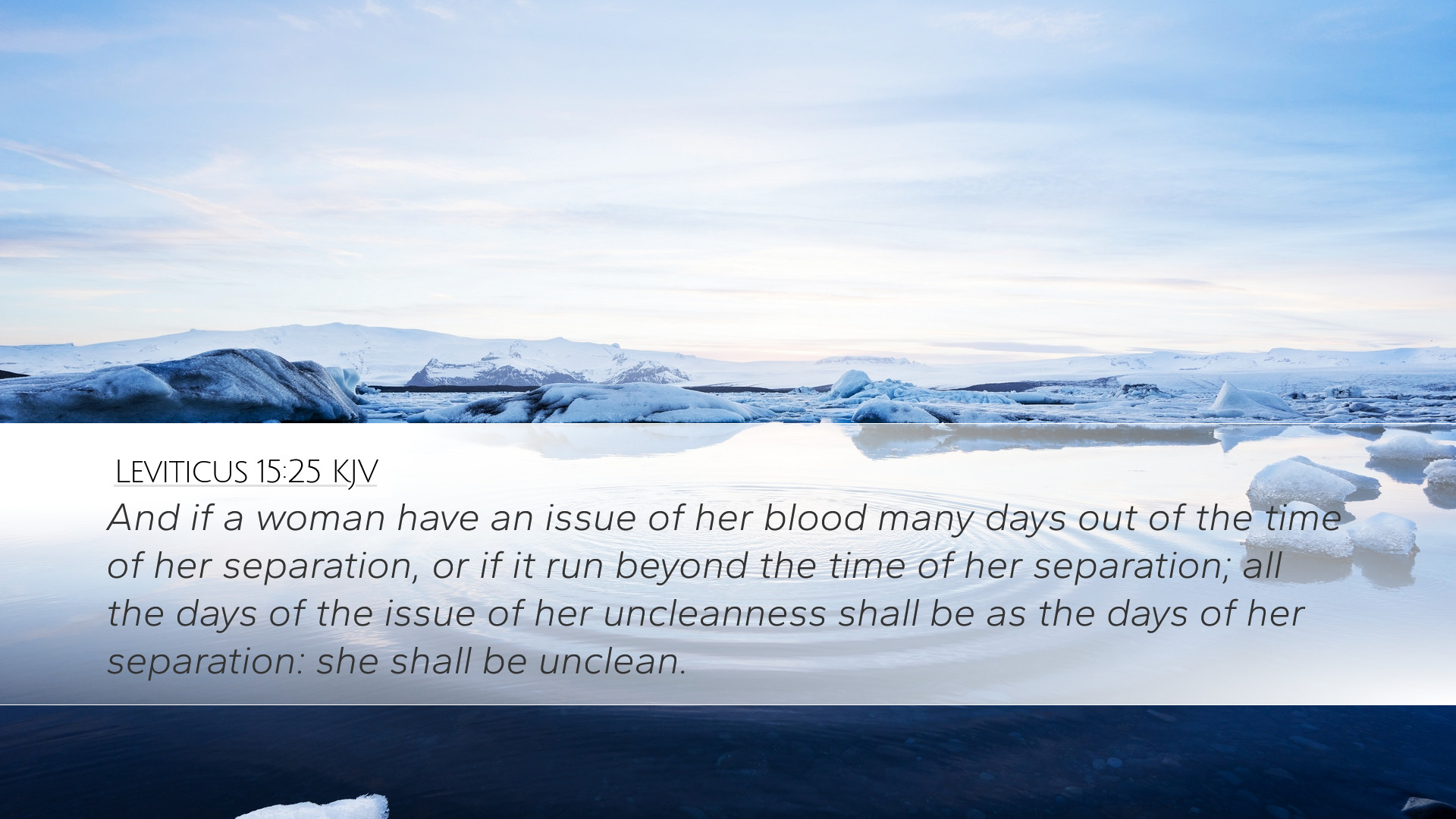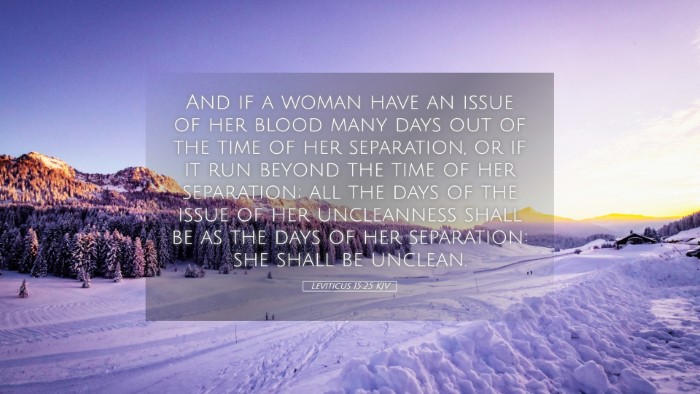Commentary on Leviticus 15:25
Verse Context: Leviticus 15:25 presents specific laws regarding bodily discharges, specifically a woman’s issue of blood. This verse states:
"And if a woman have an issue of her blood many days out of the time of her separation, or if it run beyond the time of her separation; all the days of the issue of her uncleanness shall be as the days of her separation: she shall be unclean." (KJV)
Insights from Public Domain Commentaries
Understanding the Cultural Context
The laws regarding bodily discharges provided in Leviticus are essential to understanding the holiness code central to Israelite identity. Matthew Henry emphasizes that these laws served a dual purpose: they maintained physical cleanliness and symbolized spiritual purity. The Israelites were instructed to separate themselves from unclean situations to promote both health and holiness.
Albert Barnes elaborates on the significance of blood in ancient culture, noting that it represents life and vitality. The issue of blood is seen as a serious matter since it’s linked to life and the cessation thereof. Therefore, a continual flow of blood not only poses a physical concern but carries spiritual implications as well.
Theological Reflections
Adam Clarke points out that this law highlights the deep connection between physical challenges and spiritual states. In Israel's sacrificial system, blood represented atonement and life; thus, any abnormal discharge was treated as a sign of disconnect from the community's sacred identity.
This verse serves to remind us that God's call to holiness extends to all aspects of life, including that which might seem mundane or burdensome. Throughout this chapter, God emphasizes His principles of cleanliness and separation, reflecting his desire for His people to reflect His holiness.
Implications for Community and Worship
The implications of Leviticus 15:25 extend into community life and worship. According to Matthew Henry, this law served as a protective measure to prevent communal impurity. Someone who was ceremonially unclean could not participate in the worship and communal activities, which was crucial for maintaining the sanctity of the community.
Albert Barnes highlights the relational aspect of holiness. While individual purity is emphasized, it has broader implications for community dynamics. The communal aspect of faith and the necessity to maintain purity reinforces the essence of unity and integrity in worship settings. It forces one to consider the impact of personal issues on the larger body of believers.
Applications for Modern Readers
For modern Christians, Leviticus 15:25 invites reflection on how we view issues of purity, both physically and spiritually. Adam Clarke suggests that the underlying spiritual principles remain relevant, urging believers to seek cleanliness in thought and action. He emphasizes that while the ceremonial laws have been fulfilled in Christ, the call to personal holiness remains essential.
- Spiritual Reflection: Consider areas of life where you may need to seek purity or repentance.
- Community Impact: How do your personal challenges affect your relationships with others within your faith community?
- Worship Participation: Reflect on the importance of approaching God with a heart that desires holiness.
Conclusion
Leviticus 15:25 is more than a historical command; it embodies profound spiritual truths about community, holiness, and the need for cleanliness. The insights from Matthew Henry, Albert Barnes, and Adam Clarke collectively call readers and believers to align their lives with God's standards, not only for personal benefit but for the integrity and strength of the community of faith.
As we navigate both individual and communal aspects of faith, let us strive to embrace God’s command for holiness, understanding the implications of our lives and actions on the body of Christ.


